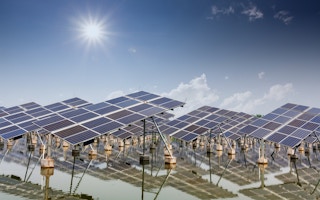China will open its energy conservation and environment protection industries to foreign and private investment, state media reported Friday, quoting comments by premier Li Keqiang made at a meeting in Beijing.
Li’s remarks may signal a change in China’s approach to the clean energy sector, which has used government subsidies to create national champions and been criticised as protectionist in nature.
He told foreign members of the China Council for International Cooperation on Environment and Development on Thursday that China is willing to work with the international community to strengthen technology and other forms of cooperation to improve the environment.
“We encourage private capital to enter the field,” the official China Daily quoted Li as saying.
At present foreign companies can invest in equipment manufacturing, but can only have limited stakes in clean energy projects like wind farms.
The comments come as central and provincial governments remain stymied in their attempts to get runaway air and water pollution under control, with air quality levels in major cities often far exceeding recommended healthy limits.
At the same time the country’s rising energy costs, which are aggravated by hastily built energy-inefficient buildings thrown up during the country’s real estate investment spree, are putting its wider economic competitiveness at risk.
The shale gas revolution in the United States has made average U.S. energy prices far cheaper than in China and economists say this development, in tandem with rising costs for labour and industrial land, means China risks losing its price advantage over U.S. manufacturers.
The government’s strategy of using subsidies to create national champions in wind and solar energy was partly successful in that it spawned some of the world’s largest manufacturers of solar panels and wind turbines. But it also created an investment glut as local governments rushed to jump on the investment bandwagon.
Many solar power and wind farms remain disconnected from the main power grid and the country still remains overwhelmingly dependent on domestic coal and imported fossil fuels to drive its economy.
The strategy has also caused significant tensions with trading partners who have complained that Chinese clean energy companies were dumping product in their markets, prompting some to apply tariffs to Chinese companies.
In his speech Li signalled he wanted a less contentious trading environment.
“We also hope China’s energy conservation and environmental protection products will enter the overseas market, and we will open the industry to the international market.”










